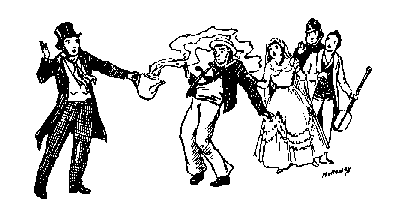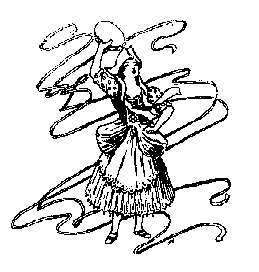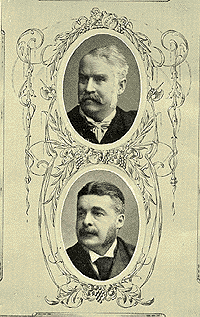Gilbert & Sullivan Opera
A History and a Comment
by H. M. Walbrook

Foreword.
A “HISTORY AND A COMMENT UPON GILBERT AND SULLIVAN OPERA": the very title breathes pleasure and happiness. First to those who, like myself in my early days, knew and worked with Sir Arthur Sullivan. His genius and his most attractive personality always remain a living memory with me. He was such a splendid friend, so broad-minded, so free from affectation, so justly admired and loved by all who were his friends, that he left a blank which can never be quite filled again. We had the feeling that he shared his good fortune with us, and I used always to call him my mascot.
Gilbert and Sullivan stood for a new type of light opera. As a composer in this sphere Sullivan has never had an equal for brightness and drollery, for humour without coarseness and without vulgarity, and for charm and grace. His orchestration is delightful: he wrote with full understanding of every orchestral voice. Above all, his music is perfectly appropriate to the words of which it is the setting. It is here that he is indeed masterly. He found the right, the only cadences to fit Gilbert's happy and original rhythms, and to match Gilbert's fun or to throw Gilbert's frequent irony, pointed although not savage, into relief. Sullivan's music is much more than the accompaniment of Gilbert's libretti, just as Gilbert's libretti are far more than words to Sullivan's music. We have two masters who are playing a concerto. Neither is subordinate to the other; each gives what is original, but the two, while neither predominates, are in perfect correspondence. This rare harmony of words and music is what makes these operas entirely unique. They are the work not of a musician and his librettist nor of a poet and one who sets his words to music, but of two geniuses.
Sir Arthur Sullivan
Gilbert and Sullivan shared, each in his own art, the rare gift of song making. Their songs, whether for one or several voices, have the melodious quality and the wide appeal which make them rank with the best folksongs. This is to say that they are popular, and popular with the nation for whom they were written. Nothing could be more English. Nothing could be more loved of the great mass of the English people — they were whistled by London errand-boys and sung in every suburban drawing-room. They have never been forgotten. I believe that they never will be forgotten, not when London's errands are discharged through pneumatic tubes and Suburbia has been laid waste to make room for skyscrapers. I believe that the acting and musical profession will always keep the memory of these songs alive, and that each new generation will learn them, as the Welsh and Scots and Irish have never ceased to learn their songs. That special humorous element which is in all of them, and which is unlike anything in the popular songs of other peoples, is so genuinely English that I think it would make them live, even were they less lyrical than they are.
It is because Gilbert and Sullivan opera makes this unfailing appeal that it is decried by so-called “superior” and “modern” musicians. With them, to be English and to be popular is to be outside the pale. Would they have closed their ears to “How should I your true love know?" when, three hundred years ago, it was sung on the popular London stage, and hummed by 'prentices in Cheapside thereafter?
I, who am not superior, long once more to hear in our theatres, as we did in the happy ‘nineties, something that has novelty and charm and interest. A potpourri of jumbled tunes, strung together by anybody and orchestrated by miscellaneous hacks, lyrics of all sorts and conditions imported from abroad, a total absence of logical structure, of either dramatic or musical sequence, in music and in libretto: all this is not worthy of theatres among which the old Savoy was once numbered. It may be — we may hope — that after this plethora of so-called comic opera and of revue, there will be a return to the great Gilbert and Sullivan tradition. But for the moment the outlook is not promising. The violent revolt against classicism has had deplorable effects on what we nowadays can only call the lower branches of musical art. Because one or two musicians of genius have taken us to new fields of beauty, as yet unmapped, hardly explored, and because a larger number of ingenious musicians have made original experiments, often interesting and equally often mistaken, the rank and file have cheerfully scrapped all their standards, not of beauty only, but of sense and decency. And we are left to the dreariness of vacancy. Is music to go, and life to be set to jazz ?
HENRY J. WOOD.
APPLETREE FARM,
CHORLEY WOOD, HERTS.
November, 1921.

